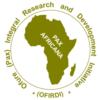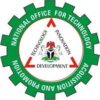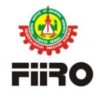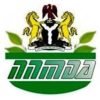THEME:
The Contribution of Indigenous Knowledge in Stimulating Integral Development in Nigeria and Africa
Conference Organizers:
OFIRDI: http://www.paxafricana.org
Paxherbals: http://www.paxherbals.net
IVSM: http://www.ivsm.org.ng
Day 1: October 5 (10:00 am – 3:00 pm) – Opening ceremonies and keynote addresses
Day 2: October 6 (9:00 am – 6:00 pm) – Panel discussions and presentation of papers
Introduction
This conference refers to indigenous knowledge systems as knowledge employed and applied to solve problems before the colonial interventions in the evolution of Africa. It involves what the indigenous people know and do, and what they have known and done for generations.
Unfortunately, these knowledge system is fast eroding due to colonialism, commercialisation, globalisation, lack of proper commodification and codification. The neglect of this aspect of knowledge systems is not only of a great loss to Nigeria but also Africa and the whole world.
It has been reported that between 300 and 500 million indigenous peoples speak a vast majority of world languages and represent the majority of cultural diversity and knowledge systems we must preserve for posterity. It is this unexplored, neglected yet significant aspect of knowledge systems that the conference intends to rejuvenate and reinvigorate so that it can be harnessed so as to stimulated integral development in Nigeria.
Aim and Scope Of the Conference
The aim of this conference is to bring together researchers, scientists, research scholars, entrepreneurs, health care practitioners and health technologists to discuss, exchange and share their experiences and research results in all aspects of indigenous knowledge in health care and health policy, traditional medicine research and practice, community development, local innovations in agriculture, biodiversity, solar technology and business enterprise.
There is an urgent need to critically examine current approaches to education, healthcare, technologies, enterprise, agriculture and development in Nigeria, and propose new methodologies, new approaches and new action plans.
The common thread weaving these diverse topics together is the need to stimulate integral development in Nigeria and in Africa. As such, this conference focuses on applying transdisciplinary approach to issues of development in Nigeria, transcending dichotomies that have tended to impede rather than stimulate sustainable development in Nigeria.
Potential topics include, but not limited to, the following:
- Re-inventing indigenous knowledge and technology in Africa
- Global bio piracy and African legal system
- The governance of science and science policy in Nigeria
- Africa traditional medicine research and Development
- Traditional African medicine and the law
- National health policy and Traditional medicine in Nigeria
- Production, standardization and quality control of herbal products
- Global bio piracy and Intellectual property rights
- Production, standardization and quality control of herbal products.
- Economic diversification in Nigeria: prospects and challenge
- Integral community Development: New approaches to development in Nigeria
- Science policy and governance in Nigeria
- The challenge of Traditional African Medicine
- Re-inventing indigenous knowledge and technology in Africa
- Global bio piracy and African legal system
- The governance of science and science policy in Nigeria
- Africa traditional medicine research and Development
- Traditional African medicine and the law
- National health policy and Traditional medicine in Nigeria
- Production, standardization and quality control of herbal products
- Global bio piracy and Intellectual property rights
- Production, standardization and quality control of herbal products
- Economic diversification in Nigeria: prospects and challenge
- Integral community Development: New approaches to development in Nigeria
- Science policy and governance in Nigeria
- The challenge of Traditional African Medicine
- From Agriculture to Agribusiness: challenges and possibilities
- The role of Agriculture in achieving sustainable development goals
- Exploring Native science to solving problems of hunger, disease and underdevelopment in Africa
- Theatre of transformation: the role of arts, music and dance in societal transformation
Important Dates
| Submission of long paper | 10th August, 2017 |
| Submission of short paper | 31st August, 2017 |
| Abstract submission Deadline | 6th September, 2017 |
| Early bird registration | 10th September, 2017 |
| Registration Deadline | 25th September, 2017 |
| Notification of acceptance | 29th September, 2017 |
| Exhibition Registration Deadline | 1st October, 2017 |
| Conference | 5th – 6th October, 2017 |
Panel Discussion – Day 2
PANEL ONE
STANDARDISATION AND REGULATION OF HERBAL MEDICINE
- hygiene and Safety issues in Traditional medicine production
- Registration of herbal medicine in Nigeria: understanding NAFDAC PROCEDURES
- The use of technology in herbal medicine production and marketing
PANEL TWO
WESTERN ALLOPATHIC MEDICINE AND TRADITIONAL AFRICAN MEDICINE: ANY HOPE FOR A SYNERGY?
FOCUS: To bring together traditional medicine practitioners, allopathic doctors, alternative medicine practitioners etc to discuss together.
PANEL THREE
INDIGENOUS KNOWLEDGE CREATION IN AFRICA: BRIDGNG THE GAP BETWEEN TRADITION AND MODERNITY
FOCUS: To encourage discussions between historians, local manufacturers, traditional healers, musicians, artists, poets, social scientists etc.
PANEL FOUR
THE ROLE OF INDIGENOUS KNOWLEDGE IN PROMOTING SUSTAINABLE DEVELOPMENT IN EDUCATION, TECHNOLOGY, HEALTHCARE AND CULTURE IN AFRICA
FOCUS on manufacturers, Agriculturists, farmers, health economists, policy makers, government agencies and ministries, NGOs etc.
REGISTRATION PRICES
Nigerians
| Category | Early bird (on or before 5th September, 2017) |
Normal registration (on or before 25th September, 2017) |
Late registration (after 25th September, 2017) |
|---|---|---|---|
| Students | N 10,000 | N 15,000 | N 25,000 |
| Regular participants | N 18,000 | N 20,000 | N 25,000 |
| Exhibition booth | N 50,000 | N 80,000 | N 100,000 |
| Showcase | N 100,000 | N 150,000 | N 250,000 |
Non-Nigerians
| Category | Early bird (on or before 5th September, 2017) |
Normal registration (on or before 25th September, 2017) |
Late registration (after 25th September, 2017) |
|---|---|---|---|
| Regular participant | USD 60 | USD 90 | USD 150 |
| Students | USD 50 | USD 60 | USD 70 |
| Exhibition booth | USD 290 | USD 580 | USD 1430 |
| Showcase | USD 580 | USD 860 | USD 1430 |
Book Your Place Now!
Sponshorship Information
Advertisement rates for the conference programme and the book of Abstracts is as follows:
| Category | Price |
|---|---|
| Inside front/back cover (Full) | N100,000 |
| Inside front/back cover (1/2) | N80,000 |
| Back cover (Full) | N50,000 |
| Inside front/back cover (1/4) | N250,000 |
| Back cover (1/2) | N150,000 |
| Back cover (1/4) | N100,000 |
For further information on sponsorship, contact:
Bolanle: +234 807 781 1431, Peter: +234 903 535 1613, Pat: +234 803 056 6703
Accommodation
Participants are responsible for their accommodation. However, information below might be helpful. Please indicate to the hotel management that you are a conference participant at FIIRO.
- Golden TULIP
-
42/44 Murtala Mohammed International Airport Road, Lagos
Conference rate: N35,000/night
https://www.goldentulip.com/de/hotels/golden-tulip-essential-lagos-airport-hotel
- IBIS HOTEL
-
35/37 Murtala Mohammed International Airport Road, Lagos
Conference Rate: N24,000/night
https://www.accorhotels.com/de/hotel-6708-ibis-lagos-airport/index.shtml
- Welcome Centre Hotel Ltd
-
Conference Rate:N24,500/night
http://welcomecentrehotels.com
- Stopover Motel
-
Travellers room: N12,500/night
http://stopovermotels.com
- Royal Motel and Suite
-
Flat room rates N20,000/night
http://royalviewhotellagos.com
- Hotel IBIS Royal
-
41 Murtala Mohammed International Airport Road, Lagos
Conference Rate: N13,500/night
https://www.hotelibisroyale.com
Submissions
Send all abstract submissions, advertisement artworks, registration request and other enquiries to: [email protected], or [email protected]
Payment
All payments should be made to: Paxherbal comm. Dev initiative. Zenith bank: 1014353795
GUIDELINES FOR ABSTRACT SUBMISSION
- All submissions have to be in grammatically correct English and proofread carefully before uploading. Submissions that do not meet academic standards for educational research will not be considered for review
- Note that submissions may not have been previously published, nor submitted before another conference for consideration
- The submission file should be in Microsoft Word or PDF file format
- The American Psychological Association (APA) style is used for formatting the paper
- All acronyms are explained and the use of acronyms is minimized
- Abstract title should be a maximum of 50 words with no abbreviations, Abstract text should be inserted into the abstract table or text
- The title of the abstract should be written in bold lower case letters (Time New Roman, font size 12) followed by names (initial first, then surname) and address(es) of the author(s) in Time New Romans, font size 10). The email address and phone number of the corresponding author
- File name should be all the authors’ last names capitalized and separated by an underscore. For example, the file of a paper by authors: James Danga, Irene Agunu and Zainab Okiti will be titled (Danga_Agunu_Okiti.pdf)
- All abstracts must be submitted through email sent to: [email protected], or [email protected]
- The deadline for submitting abstracts is 6th September, 2017 at 3pm. The decision on each submitted abstract will be available by 25th September
- All accepted abstracts will be published in a refereed summit proceedings
- All presenting authors must be registered for the conference
- Abstracts should be intelligible to the non-specialist readers and, except for case study submissions, should be presented in the order of: Aims or Objectives, Methods, Results and Conclusion or Summary
Paper and Poster Submissions
There are three types of submission for the conference including:
- Papers and posters presentations
- Workshops and symposium
- Innovative showcases and workshops








